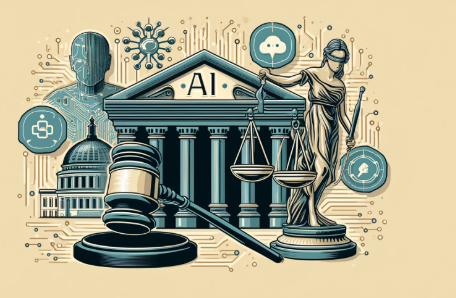The rapid evolution of artificial intelligence introduces profound ethical considerations. Developers face the challenge of balancing technological advancements with societal responsibilities. Key issues such as bias, transparency, and accountability demand careful scrutiny. As AI systems increasingly influence daily life, the implications of their design and deployment become critical. Understanding how to navigate these ethical dilemmas is essential for fostering trust and equity in AI applications. What frameworks can guide this complex endeavor?
Understanding the Ethical Implications of AI
As society increasingly integrates artificial intelligence into various aspects of daily life, it becomes essential to explore the ethical implications that accompany such advancements.
AI morality raises concerns about decision-making ethics, privacy issues, and human rights. The societal impact can exacerbate technological inequality, fostering trust issues while posing regulatory challenges.
Thus, a nuanced understanding of these dynamics is crucial for fostering responsible AI development.
Read more: The History and Future of Mobile Phones
Key Ethical Frameworks for AI Development
While the integration of artificial intelligence into society presents numerous benefits, it also necessitates the establishment of ethical frameworks to guide its development and implementation.
Two prominent frameworks include the utilitarian approach, which emphasizes outcomes and the greatest good for the greatest number, and deontological ethics, which focuses on adherence to moral duties and principles, promoting responsibility in AI decision-making.
Addressing Bias and Promoting Fairness in AI
Although the promise of artificial intelligence lies in its capacity to enhance efficiency and decision-making, the pervasive issue of bias within AI systems poses significant ethical challenges.
Addressing this requires a commitment to data diversity and a focus on algorithmic fairness.
Ensuring Accountability and Transparency in AI Systems
The challenges of bias in artificial intelligence underscore the necessity for accountability and transparency within AI systems.
Implementing responsibility measures and transparency mechanisms is crucial for fostering trust and ensuring ethical use. By openly communicating algorithms and decision-making processes, stakeholders can scrutinize AI behaviors, thereby promoting a culture of responsibility that respects individual freedoms while balancing innovation with ethical imperatives.
Conclusion
In navigating the intricate landscape of artificial intelligence, the importance of ethical considerations cannot be overstated. Like a compass guiding a ship through turbulent waters, robust ethical frameworks illuminate the path towards responsible innovation. By addressing biases, promoting fairness, and ensuring transparency, stakeholders can cultivate an environment of trust and accountability. Ultimately, prioritizing these principles is not merely an obligation but a vital investment in a future where technology serves as a force for good.





